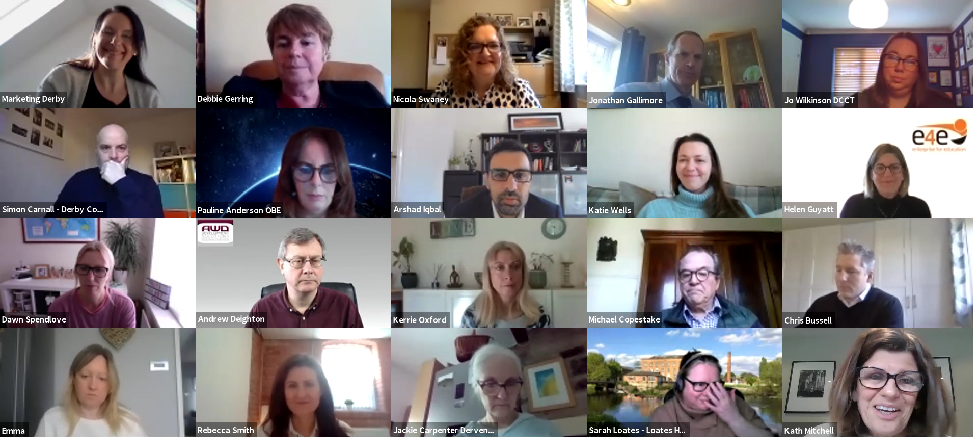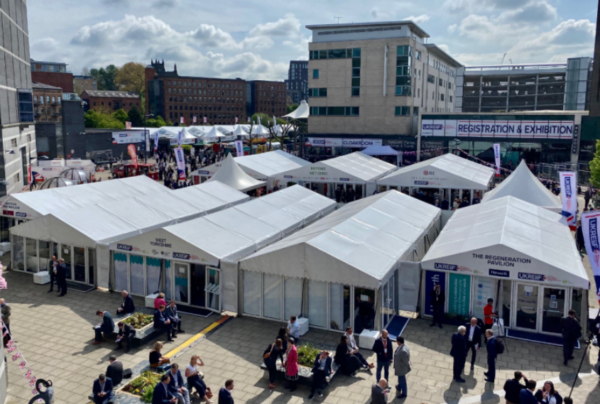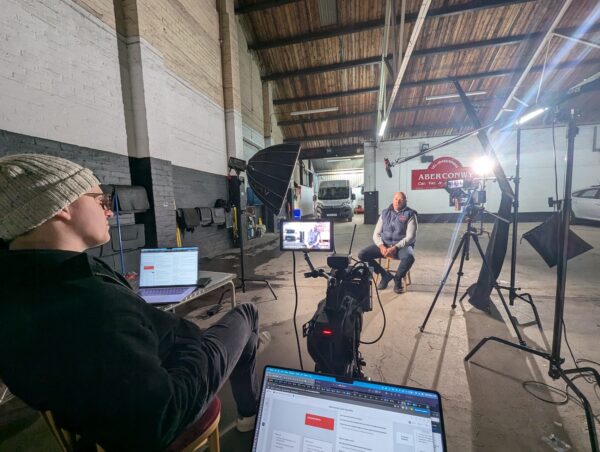Latest News | 16 March 2021
Bondholders urged to help bridge Derby’s digital divide

Marketing Derby Bondholders have been urged to help bridge the digital divide impacting the city’s young people – a divide made bigger by the coronavirus pandemic.
In the latest Marketing Derby Bondholder Blast session, entitled Education and Digital Poverty, attendees heard from various guest speakers about how the pandemic had impacted on the education of children, particularly those in the most deprived areas of the city.
The session, hosted by Nicola Swaney, education outreach manager at Rolls-Royce, talked about how the coronavirus crisis had highlighted and exacerbated the digital divide.
The panel discussed how pupils from disadvantaged backgrounds were less likely to have access to appropriate IT devices, a reliable internet connection and the quiet space needed to access remote learning.
The session also explored what is being done to address this – and how Bondholders can help through donations, of cash, laptops and employees’ time.
As well as explaining how Rolls-Royce was tackling the issue nationally, with donations of hundreds of laptops, as well as encouraging its own staff to help, Nicola introduced the work of the Derby Opportunity Area, of which she is a board member, and how it is tackling digital poverty head-on.
Fellow board member Pauline Anderson, service director for learning, inclusion and skills, at Derby City Council, explained how digital poverty had become one of the areas of inequality which had been exposed by the pandemic.
She that a “great deal” had been happening in the city to support schoolchildren, with the provision of laptops and connectivity, but more needed to be done, with the council pledging £250,000 to help bridge the gap.
Jonathan Gallimore, executive head teacher at Hardwick Primary School and St James Junior School, said the digital divide became apparent early on in the pandemic as schools in deprived areas faced the challenge of staying connected with and teaching socially-disadvantaged pupils.
He explained how connectivity was the biggest issue that needed to be addressed.
He said: “We need to do something about this – not only for the now, but for the longer term, if we are really going to tackle social mobility issues.”
Simon Carnall, head of community at Derby County Community Trust, talked about the setting up of new community digital hubs, in the heart of communities, designed to enable children and their families to access the internet, computers and develop digital skills.
But he said that it relied on funding, physical donations of working laptops and people giving their time to help teach how to use the devices.
Debbie Gerring, headteacher at St Martin’s Special School, said by working in partnership, the hubs would provide a good environment to learn digital skills.
And Arshad Iqbal, E4E broker, at Enterprise for Education, a council-led public/private sector partnerships, which works with schools in the city, revealed the scale of digital poverty in some households and echoed the appeal for donated laptops, cash and people’s time.
Any business wanting to help can find out more information here.
To watch the discussion in full click here.


